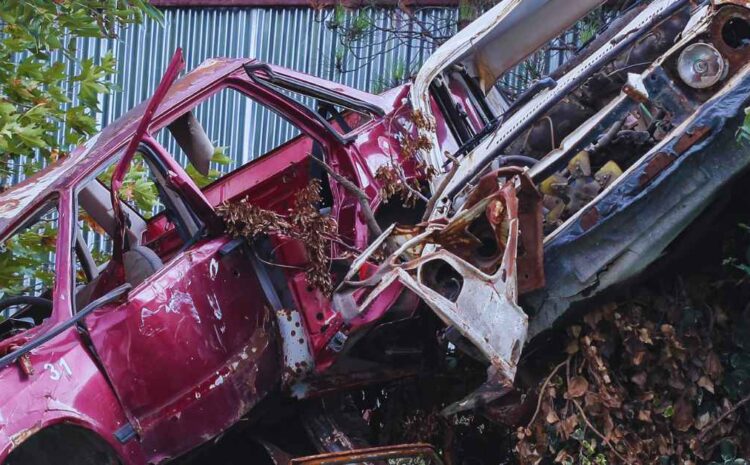
The Future of Mobility: Autonomous Vehicles and Their Implications for Car Scrapping
Introduction
In the bustling metropolis of London and its neighbouring 20 cities, where the heartbeat of society resonates through the streets, lies an opportunity for profound social impact – sustainable car scrapping. Fast Scrap Car, revered as one of the premier scrap car service providers, embarks on a journey to explore the implications of autonomous vehicles for the car scrapping industry. This blog delves into the revolutionary advancements in autonomous technology and examines how they are reshaping the future of car scrapping in London.
Fast Scrap Car – Embracing Innovation, Preserving Tradition
Before we delve into the future of mobility, it’s essential to acknowledge Fast Scrap Car’s commitment to embracing innovation while preserving the traditions of responsible car scrapping. The company’s ethos embodies a balance between progress and sustainability, paving the way for a seamless transition into the era of autonomous vehicles.
Fast Scrap Car has long been a leader in the car scrapping industry, known not only for its efficiency and reliability but also for its unwavering commitment to environmental stewardship. With a state-of-the-art facility equipped with the latest recycling technologies, the company has set new standards for sustainable car scrapping in London and its surrounding areas. However, as technology continues to evolve, so too must Fast Scrap Car’s approach to car scrapping.
As we navigate through the realm of autonomous mobility, the purpose of this blog is twofold. Firstly, it seeks to explore the groundbreaking advancements in autonomous vehicle technology and their potential impact on the car scrapping industry. Secondly, it aims to anticipate the challenges and opportunities that lie ahead, offering insights into how Fast Scrap Car is preparing for the future of car scrapping in London.
The Rise of Autonomous Vehicles: A Technological Revolution
Autonomous vehicles represent a paradigm shift in transportation, promising safer, more efficient, and environmentally friendly mobility solutions.
Advancements in Autonomous Technology
From advanced sensors and artificial intelligence to machine learning algorithms, autonomous vehicles are equipped with cutting-edge technology that enables them to navigate roads autonomously and make real-time decisions.
Sensor Fusion and Perception
Autonomous vehicles rely on a combination of sensors, including LiDAR, radar, and cameras, to perceive their surroundings and detect obstacles, pedestrians, and other vehicles.
Machine Learning and Decision Making
Through machine learning algorithms, autonomous vehicles continuously learn from their interactions with the environment, refining their decision-making processes and improving their ability to navigate complex traffic scenarios.
Implications for the Car Scrapping Industry
The widespread adoption of autonomous vehicles has significant implications for the car scrapping industry, shaping the future of car scrapping in London.
Changes in Vehicle Ownership Patterns
As autonomous ride-sharing services become more prevalent, the traditional model of vehicle ownership may shift towards shared mobility. This could lead to a decrease in the number of privately owned vehicles and, consequently, a change in the composition of scrapped cars.
Recycling and Repurposing Autonomous Vehicles
Autonomous vehicles contain advanced technology components that require specialised recycling processes. Fast Scrap Car is at the forefront of developing innovative recycling solutions to maximise the reuse and repurposing of autonomous vehicle materials, contributing to a circular economy and minimising waste.
Autonomous vehicles are revolutionising transportation, promising to reshape the way people move around cities and towns. With the potential to improve road safety, reduce traffic congestion, and minimise environmental impact, autonomous vehicles represent a transformative shift in the future of mobility.
Fast Scrap Car’s Vision for the Future
Fast Scrap Car embraces the opportunities presented by autonomous vehicles and remains committed to sustainable car scrapping practices in London.
Investment in Technological Infrastructure
Fast Scrap Car invests in state-of-the-art technological infrastructure to accommodate the evolving needs of the autonomous vehicle industry. By upgrading facilities and implementing advanced recycling technologies, the company ensures the efficient and environmentally responsible processing of autonomous vehicles.
Collaboration with Industry Stakeholders
Fast Scrap Car collaborates closely with autonomous vehicle manufacturers, ride-sharing companies, and regulatory bodies to develop recycling solutions tailored to the unique requirements of autonomous vehicles. These partnerships facilitate the responsible disposal and recycling of autonomous vehicle components, furthering the transition towards a sustainable mobility ecosystem.
Fast Scrap Car’s commitment to sustainability extends beyond its operations to encompass the broader goals of the autonomous vehicle industry. By working collaboratively with industry stakeholders, the company aims to shape a future where mobility is safe, efficient, and environmentally friendly for all.
Conclusion
In conclusion, the future of mobility is poised for a revolution, with autonomous vehicles leading the charge towards safer, more efficient, and sustainable transportation. As London prepares to embrace this technological evolution, Fast Scrap Car stands ready to navigate the road ahead, leveraging innovation and sustainability to shape the future of car scrapping in the era of autonomous mobility. By embracing change and fostering collaboration, Fast Scrap Car reaffirms its commitment to preserving tradition while embracing progress, ensuring a seamless transition into the future of car scrapping in London.
